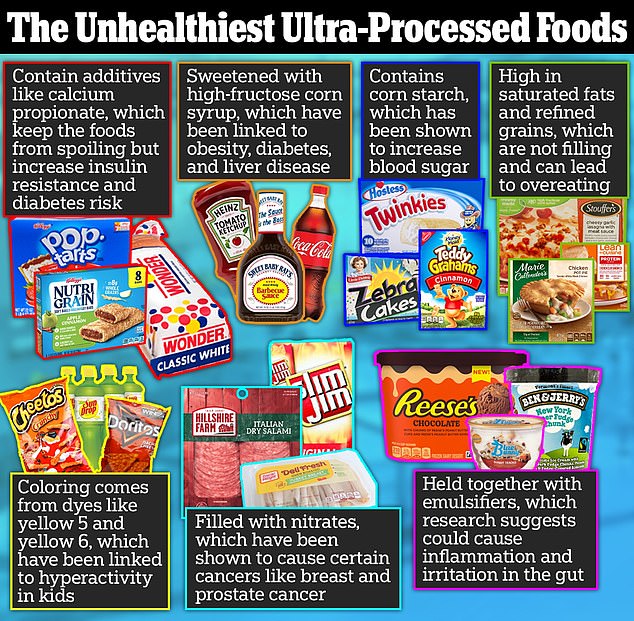I’m an expert who helped Coca-Cola, Kellogg’s and Ferrero make their products addictive… here’s how they get you hooked and why I’ve cut out junk food completely
Dr. Brian Smith, a philosopher who studies the taste of food, urges people to think twice before consuming ultra-processed foods
Dr. Barry Smith has worked with the world’s biggest junk food brands for nearly a decade, helping to make their products irresistibly delicious and tasty.
The food scientist was part of the expert team that manipulated every aspect of our favorite products, from packaging to texture, smell and taste, to leave us wanting more.
But that is no longer the case. Now the expert has completely given up junk food because of its harmful effects on his health.
And he reveals the secrets of the trade to warn us about it too.
For example, they add the characteristic “sting and tear” sound when you open a can of soda, so that it looks refreshing. Or the popping sound of a bottle of Snapple juice, which the brain has learned to associate with a treat.
Dr Barry began working on improving flavours in 2010 when he set up a ‘wet’ lab in London to investigate how different ways of presenting a product could change its flavour.
He says some of the tests were used to help brands like Coca-Cola, Kellog’s and Ferrero make their products more appealing.

Above are some of the UPFs available in the United States. FULL CAPTIONS PLEASE
Dr. Smith said that just before you eat a high-sugar snack, the brain releases dopamine – the feel-good hormone – in anticipation of something good.
This is what food companies are trying to exploit: through the velvety appearance of chocolate, the explosion of smells in a bag of chips or the brightly coloured packaging of sweets.
Dr. Smith used to be a big fan of junk food, with about 30 to 40 percent of his diet consisting of ultra-processed foods.
But after learning how dangerous eating so much sugar was to his health, he decided to quit altogether.
The result? He now feels much healthier, more energetic, and happier than before — and he’s even lost weight unintentionally.
He also showed how foods have been modified to make them more palatable, even though most people normally find them too sweet.
He used the example of soft drinks, saying that their fizz and cold temperature both help to reduce their sweet tastes. The bubbles change the taste perception on the tongue, while the cool temperature makes taste buds less sensitive to sweetness.
Research shows that a diet high in processed foods is linked to a number of health risks, including obesity, heart disease and type 2 diabetes.
Dr. Smith advises taking a break from processed foods so your taste buds can adjust to a diet that isn’t high in sugar.
In an interview with Business insiderhe proposed investing in ways to make non-junk foods tastier.
Vegetables, he said, may look bland, but you can make them more flavorful by roasting, baking or fermenting them.
“You’re not going to convince people to get off ultra-processed foods by telling them it’s bad for them,” he said. “It’s all about the taste.”
“You have to make them really tasty, so that people realize that they can make something reasonably cheap and reasonably good out of it, which I also really enjoy.”
